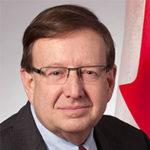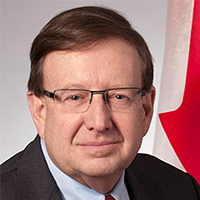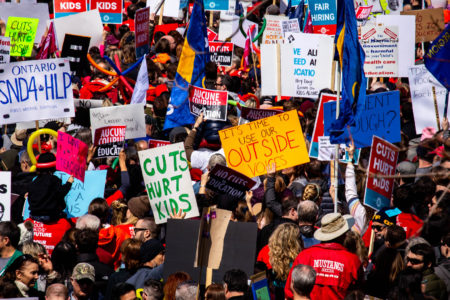
The federal government talks tough on overseas tax evasion, saying it is a high priority and it will catch you if you cheat. But the Canada Revenue Agency (CRA) has a terrible track record of collecting from Canadians hiding their money overseas. It’s not catching, charging or convicting tax cheats the way other countries are able to.
Why the federal government allows this state of affairs to continue year after year remains a mystery.
But the CRA has a history of making false or misleading statements about its efforts, and its latest move seems designed to further block progress.
Recently, on the third anniversary of the release of the Panama Papers, we learned that other countries have recovered more than $1.2 billion in fines and back taxes:
- Australia has recouped $92 million.
- Spain is counting $164 million in its coffers.
- The United Kingdom has recovered $252 million.
- Even Iceland, with a population of roughly 350,000 people, was able to recover $25.5 million.
Of the 894 Canadians (individuals, corporations and trusts) revealed by the Panama Papers to have accounts, the Canada Revenue Agency hasn’t recovered a dollar.
The CRA says the problem is complex, and that it has identified money. Well, it is complex for every country, and other countries have been able to collect the money, which is now available for them to invest or to lower taxes.
Meanwhile, the government doesn’t even know the size of the problem.
At my request, the Parliamentary Budget Officer (PBO) has been trying to estimate the tax gap (the difference between what the CRA collects and what it should be collecting) since 2012. Other countries, like the United States, the United Kingdom, Turkey and Sweden publish their tax gap.
In February, Yves Giroux, the PBO, sent a letter to Revenue Minister Diane Lebouthillier, asking for information by mid-March. But the CRA has not given him the raw data he needs to inform the government and Canadians about the amount of unpaid taxes due to overseas tax evasion. “It’s very difficult to fix a problem that you cannot quantify, » Giroux told a reporter in April.
I am hoping to force CRA to cooperate with Giroux in his independent study of the tax gap. My Bill S-243 pushes for this, and for the CRA to report on all convictions for overseas tax evasion. The bill has passed the Senate and is in its Second Reading in the House of Commons.
The CRA has a poor track record when it comes to open, honest communication.
The Revenue Minister has said publicly that 1,300 auditors have been hired to combat tax evasion. But in early April, investigative reporter Christopher Nardi of the Journal de Montréal found it has hired only 192 since January 1, 2016.
Yet, in 2017, the CRA spent almost $300,000 on advertising that trumpeted its efforts against tax evaders. In February and March of that year, it ran sponsored content in six newspapers across Canada with the headlines “Federal programs in place to address offshore tax avoidance and evasion” and “How Canada is cracking down on offshore tax evasion and aggressive tax avoidance.” Information about the cost of the ads was shared in an answer I received in response to a written question in the Senate.
In November 2017, the CRA took pains to remind Canadians of its full-time dedicated unit focused on offshore non-compliance, giving the impression the unit was a new, additional resource to combat overseas tax evasion. Yet, earlier that year, in March, it acknowledged in response to a written question in the Senate, that the unit – the International, Large Business and Investigations Branch – had been formed by reorganizing existing CRA assets. It “did not necessitate an increase or transfer of resources,” it said. In other words, people already working for the agency were simply shuffled to a different part of it.
CRA spokespeople and the Revenue Minister say $1 billion has been invested in the fight against tax evasion. But only a small fraction of that has been spent. A billion dollars is the amount the government has promised to invest over six years. By of the end of 2017, less than $107 million had been spent. Moreover, the agency has admitted that some of the money has gone to fund previously agreed-to wage increases.
The agency talks tough every time there is a public leak of information from some bank or law firm operating in a tax haven. Nevertheless, not one person has been charged with overseas tax evasion, much less convicted, fined or sentenced since the 2006 information leak we know the most about, from a bank in Liechtenstein, where 106 Canadian-held accounts were found to contain more than $100 million.
In fact, as reported by the Auditor General, the CRA “waived referrals for potential criminal investigation to gather information.” In other words, the agency promised not to charge the people involved in that tax scheme in exchange for them explaining to the CRA how it actually worked and agreeing to pay what they owed.
Compare this to Australia, for example, where not only are back taxes and penalties paid, but individuals are charged with committing a crime and in many cases convicted, fined and jailed, and the country uses those convictions to warn citizens that it is serious about tax evasion.
“As a result of Project Wickenby’s focus on preventing the abusive use of secrecy havens,” a 2012 audit of an Aussie anti-tax evasion task force noted, “Australia is presently less attractive for international tax fraud and evasion than it otherwise would have been. After a slow start, the project has achieved substantial results from its activities, which contribute to protecting Australia’s revenue base.”
However, in Canada, any lessons learned from the Liechtenstein affair have obviously not been very effective, as three years after the release of the Panama Papers, nobody has been charged as a result of that leak, either.
In short, the CRA has failed Canadians.
Because Canada has not recovered any money, three things have happened. One, we don’t have that money to fund our priorities without incurring a deficit; two, the rest of us have to make up the shortfall by paying more taxes; and three, Canadians are wondering why we have a two-tier justice system for tax evasion. Try to cheat on your domestic taxes, and the CRA will likely find you, charge you, convict you and force your repayment. Hide your money overseas, and you likely will never be charged or convicted. The odds are good you will get away with it, and your federal government allows this double standard to continue.
How many millions of dollars hidden overseas are owed to our country and are not being collected? No one knows, and the federal government, despite its apparent resolve, seems not to care. Why? It remains a mystery.
But during the coming federal election, Canadians might want to ask why people are being treated differently depending upon whether they’re evading their taxes at home or overseas.
Photo: Shuttersck by Yabresse
Do you have something to say about the article you just read? Be part of the Policy Options discussion, and send in your own submission. Here is a link on how to do it. | Souhaitez-vous réagir à cet article ? Joignez-vous aux débats d’Options politiques et soumettez-nous votre texte en suivant ces directives.








